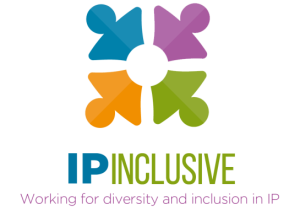Encouraging a diverse profession – building a clearer profile
The Legal Services Act 2007 has a regulatory objective of ”encouraging an independent, strong, diverse and effective legal profession”. The Legal Services Board, the oversight regulator of legal services in England and Wales, has set the diversity regulatory framework for all legal regulators:
|
Diversity Profile - the regulator continues to build a clear and thorough understanding of the diversity profile of its regulated community (beginning at entry), how this changes over time and where greater diversity in the workforce needs to be encouraged Regulatory Arrangements/Operational Processes/Other - the regulator uses data, evidence and intelligence about the diversity of the workforce to inform development of, and evaluate the effectiveness of, its regulatory arrangements, operational processes and other activities Collaboration - the regulator collaborates with others to encourage a diverse workforce, including sharing good practice, data collection, and other relevant activities. Accountable - the regulator accounts to its stakeholders for its understanding, its achievements and plans to encourage a diverse workforce. |
IPReg is committed to improving the breadth and quality of reporting of the diversity profile of attorneys on the IPReg register. The main 2019 business priority for IPReg was development, testing and implementation of a new Customer Relationship Management (CRM) system. The new CRM has a significantly improved functionality which should help us gather much more reliable and comprehensive diversity information. We have published the results of two diversity surveys: the Diversity Statistics Summary 2017 illustrates the limits of the earlier profiling exercises; the 2021 survey provides more detailed information. We will be conducting a further survey in 2024 and the results will be published on our website.
Once we have built up a clearer picture of the diversity profile of registered attorneys this will help inform IPReg policy and decision-making. We hope to be able to identify additional funding priorities targeted at areas of under-representation and anticipate working closely with groups such as IP Inclusive to do this.
Working together - funding of Diversity Initiatives
Since 2015, we have allocated a specific amount in our budget to support diversity initiatives. Initiatives which have been funded include:
- Generating Genius works with Science, Technology, Engineering and Mathematics (STEM) students from disadvantaged backgrounds, the funding was for its “proof of concept” work to develop web-based source materials for school science club teachers;
- along with a small number of other legal regulators, we promoted the Legal Choices website and the regulators through sponsoring logos on a London Pride Parade bus; the IPReg Board has been represented in person at the parade;
- contributions have been made towards the operating costs of IP Inclusive;
- In2Science summer programme.
IP Inclusive – promoting equality, diversity and inclusivity throughout the IP professions
IP Inclusive is an initiative set up by CIPA, CITMA, FICPI-UK, the IP Federation and the UK Intellectual Property Office devoted to promoting equality, diversity and inclusivity throughout the professions. Find out more at: IP Inclusive. IPReg has signed up to its Inclusive Charter; in doing so, “we commit to supporting equality, diversity and inclusion by:
|
Our Chair, Lord Chris Smith of Finsbury, is IPReg’s named EDI Officer, to demonstrate the importance of diversity matters for IPReg. Please see Lord Smith’s LGBT+ Writing The History Blog written for IP Inclusive to mark LGBT+ History Month.

